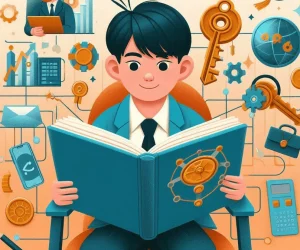For hundreds of years (possibly thousands), the music lesson has consisted of a couple basic elements: A teacher, a student, perhaps some sheet music, a pencil and maybe a metronome. As time has gone by, we’ve added some things too… Perhaps a recording, maybe some video, how about a recorded backing track? While all of these educational aides may not have revolutionized learning an instrument, over the past couple of years the technology of the delivery and communication of 1-on-1 lessons may have.
Despite the fact that for the professional musician, teaching and mentoring has always been a part of the job description (from Bach to Coltrane to Stravinsky, they have all been educators in some capacity in their career), over the past ten years it has become more so. From the collapse of the recording industry (and subsequently less work in many aspects of the music business), to more and more world-class music programs popping up at institutions everywhere, there is simply less work and more pro’s than ever, leading many to teach more than ever. But how to get enough students to fill up a schedule, and take advantage of the tools of the net?
The answer is online music lessons; specifically lessons via video-conferencing.
More than ever the world is connected through webcams and online meeting platforms like Skype or iChat, or on the business end with WebEx and GoToMeeting. Music lessons, now, are no different. New trends in technology are resulting in virtual music schools, with communities of teachers with portals to their virtual teaching studios. This revolution in education is not only a way for teachers to add more students to their roster from across the globe, but also can benefit the student and overall population alike.
There are some obvious benefits right off the bat:
• Save gas, and travel costs
• Save travel time and hassle
• Study with great teachers that you may not have been able to due to location
• Have less cancellation due to illness or traffic
• If the lessons are for kids, it gives them something beneficial and constructive to do if they’d already be on the computer
There are also some less obvious, and indirect benefits on our population as a whole:
• Go green. No gas or physical paperwork
• Connects different backgrounds and musical cultures that may have been previously impossible
• Spreads direct education of ethnic music’s across physical and cultural boundaries
• Lends to employment of musicians, artists and educators
• Makes music education accessible to all
• Levels the playing field and raises the bar for the quality of teacher one can get
The tools are there for the taking, and the benefits are vast. Online music education is not going anywhere, and the technology is improving every day. Next time you’re thinking about taking a guitar lesson, a piano tutorial, drumming lessons, or anything else for you or your kids as well, check out some online lessons. There are a number of options and amazing teachers out there offering music classes and private lessons. Check it out!






More Stories
Education for all: Is the world on track? Some personal reflections on the first EFA Global Monitoring Report, 20 years back
There’s Only One Thing Better Than Proctoring
Top 20 C# courses for a long-lasting future in programming